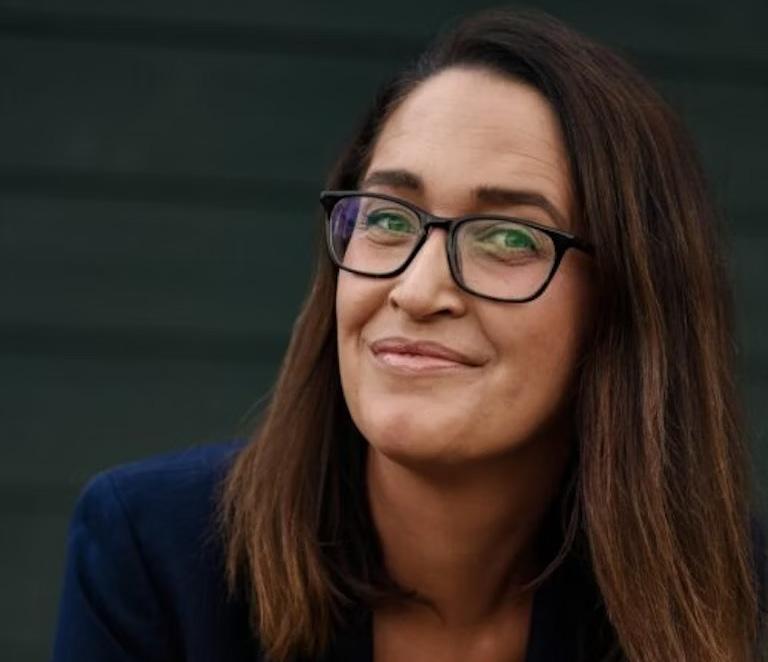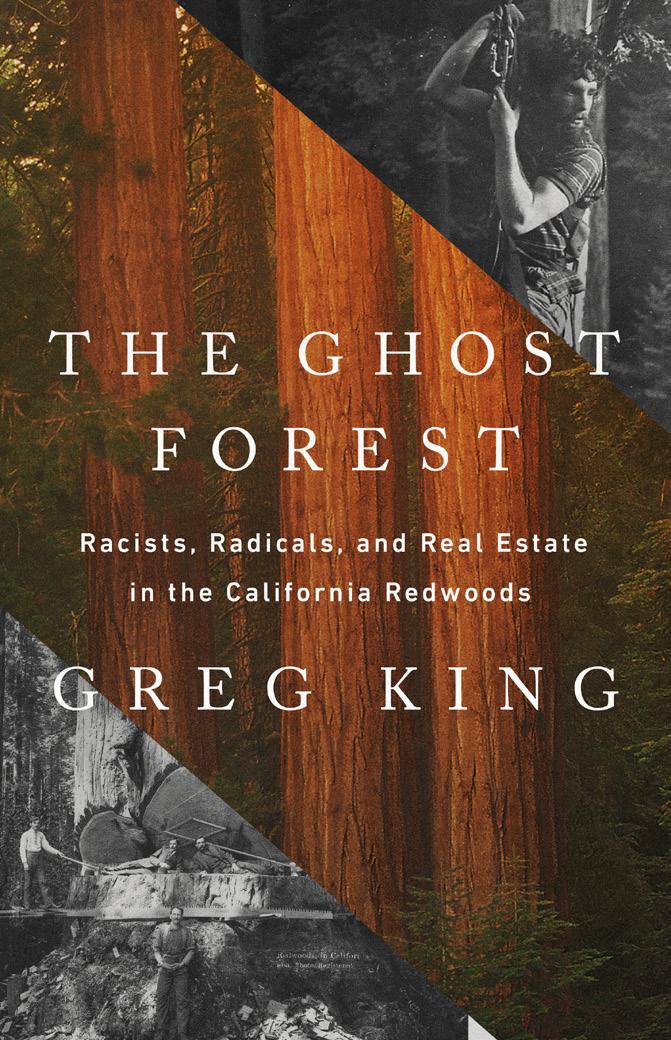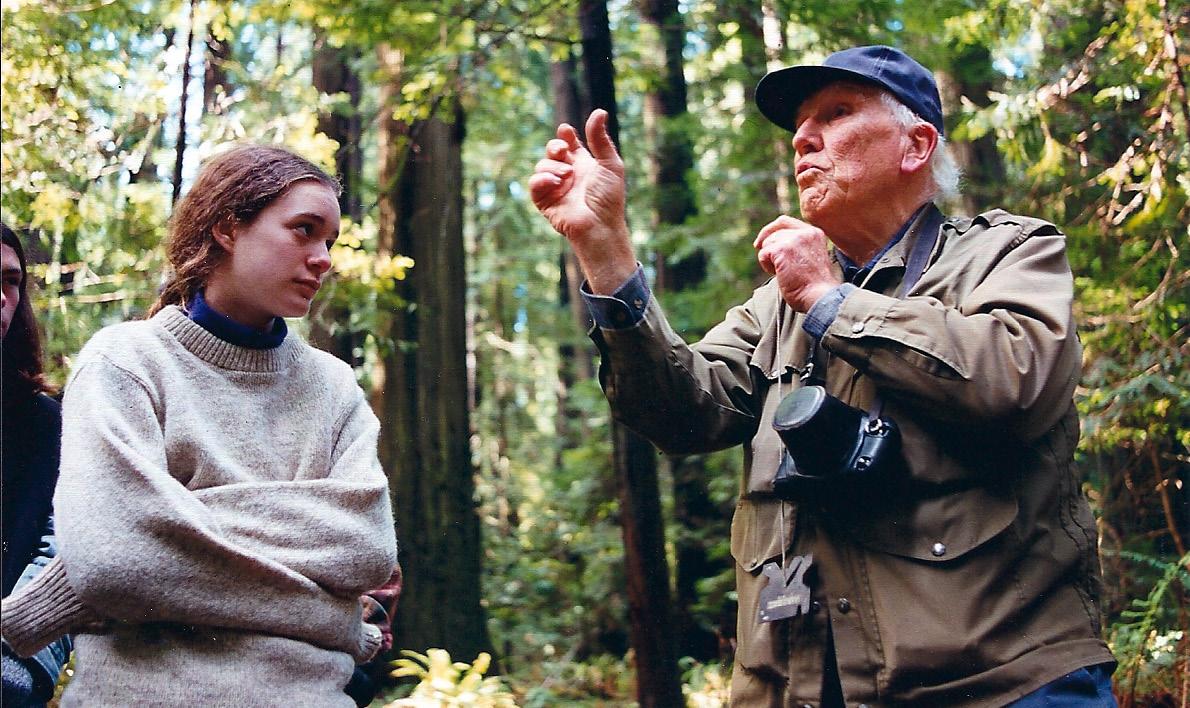
2 minute read
Forest Activism
Dr. Jennifer Bernstein '97

Dr. Jennifer Bernstein '97 is a professor of Environmental Studies at Tarleton State University and the Editorin-Chief of the academic journal Case Studies in the Environment. She is the author of Sustainable Development Goal 12: Responsible Consumption and Production and a Senior Fellow at the Breakthrough Institute.
What sparked your interest in Environmentalism and Forest Ecology specifically? What experiences at MA (e.g., classes, clubs, projects) ignited this passion?
I grew up camping and hiking and always enjoyed spending time outdoors. I turned to environmentalism after my 1994 Minicourse, "Old Growth Forest Ecology." It was led by Greg King, an investigative journalist, and Tracy Katelman, a forester. We headed to Humboldt County, hiked in the redwoods, and met with activists and academics who showed us the majesty and irreplaceability of these forests. Years later, inspired by this Minicourse, I went on to teach my own minicourse at MA called "Surfing and Saving the California Coast."
Tell us about some of your favorite professional accomplishments.
I have come to realize the importance of nuclear energy in addressing climate change. Last summer, I traveled to Jamaica with the Breakthrough Institute, where we taught rural high schoolers about nuclear engineering. I am confident they will pave the way towards the country's energy independence. When I taught at the University of Southern California, my favorite part of the position was helping students succeed both in and beyond the classroom. The greatest honor of my professional career was being named USC's 2022 Mentor of the Year.

How did you end up reviewing your former Minicourse Instructor's new book, The Ghost Forest?
Greg and I never lost touch, actually! I eventually moved away from the type of radical environmentalism that was the focus of that minicourse. Despite our differences, he happily gave invigorating guest lectures in my courses. The Ghost Forest was Greg's life work and has been rightfully heralded by the mainstream press. I thought it needed recognition within academia, so I pitched a review to the prestigious journal Environmental History. It was an honor to come full circle.
If you could give one piece of advice to your high school self, knowing what you know now, what would it be?
Changing your mind is a source of strength, not a weakness. Minicourse made me a passionate forest activist, and I will always have that radicalism in my heart. But I've come to identify with the ecomodernist movement, which advocates for solutions not always embraced by mainstream environmentalism. For example, I believe genetically modified organisms can address global hunger and spare land for nature. I am now a huge advocate of nuclear energy. My high school self would have disagreed with so many things I embrace as an environmentalist now. But we can change and still be committed to the broader cause. So retrospectively, I'd tell myself that changing your mind is a result of grappling with an ever-evolving world, and that's okay. Actually, it's great.




What are your hopes for the future of Forest Ecology? How can you and the Marin Academy community get involved and help out?
For one, we need to remain critical of popular solutions to environmental problems that aren't grounded in data. For example, environmentalists have boycotted the use of palm oil due to its degradation of orangutan habitat. But palm produces nearly ten times more oil per acre than other popular alternative oil crops.
So, boycotting palm oil means that more forests need to be cleared for agriculture, which is the primary cause of deforestation. If you want to address deforestation, boycotting palm oil is actually counterproductive. We need to make sure that straightforward, feel-good solutions live up to their promises.
There have been so many heartening developments in my lifetime. The complexities of forest ecosystems are much better understood. Sustainable forest practices have been widely (but not universally!) adopted. The mainstream media portrays humanity on a collision course with climate-caused disasters. But this isn't an inevitable reality. Less acknowledged is positive progress being made, such as the decrease in the destruction of the Amazon since the 1990's. We need to relentlessly advocate for effective solutions to environmental problems, and we have every reason to be optimistic.






